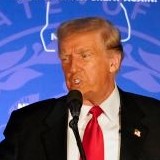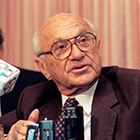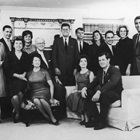
Matt and Sam are joined by historian Kim Phillips-Fein to discuss historical scholarship on American conservatism. How has the study of the right changed since 2016? And how should the field orient itself to 2024?

Matt and Sam welcome historian Erik Baker onto the podcast to discuss Garry Wills’s blistering critique of the national security state and unaccountable presidential power in his 2010 book, Bomb Power.

Matt and Sam interview historian Jennifer Burns about her new biography of Nobel Prize–winning economist and libertarian intellectual Milton Friedman.

A discussion of Garry Wills’s 1982 book on the Kennedy family.

In the annual mailbag episode, Matt and Sam answer listener questions about topics ranging from the influence of post-liberal intellectuals on the right to their favorite Willie Nelson albums.

John Ganz returns to discuss William F. Buckley Jr.’s 1992 book In Search of Anti-Semitism.

Samuel Moyn returns to the podcast to discuss his new book Liberalism Against Itself: Cold War Intellectuals and the Making of Our Times.

Nate Hochman was fired from Ron DeSantis’s presidential campaign after producing a video containing a Nazi symbol. Matt and Sam reflect on why they invited him on the show in 2021—and on what his trajectory tells us about the young right today.

Matt and Sam talk about the lawsuit filed against the podcast and Dissent before turning to the conservative movement’s recent victories at the Supreme Court.

Matt and Sam explore the “crisis of masculinity” in America through books on the subject by Senator Josh Hawley and Harvard political theorist Harvey Mansfield.

On Ron DeSantis’s political aspirations.

In some respects, Dylan’s Philosophy of Modern Song is a quintessentially conservative book. But Dylan’s America never stops moving, reinventing itself, or rebelling against its own strictures.





















